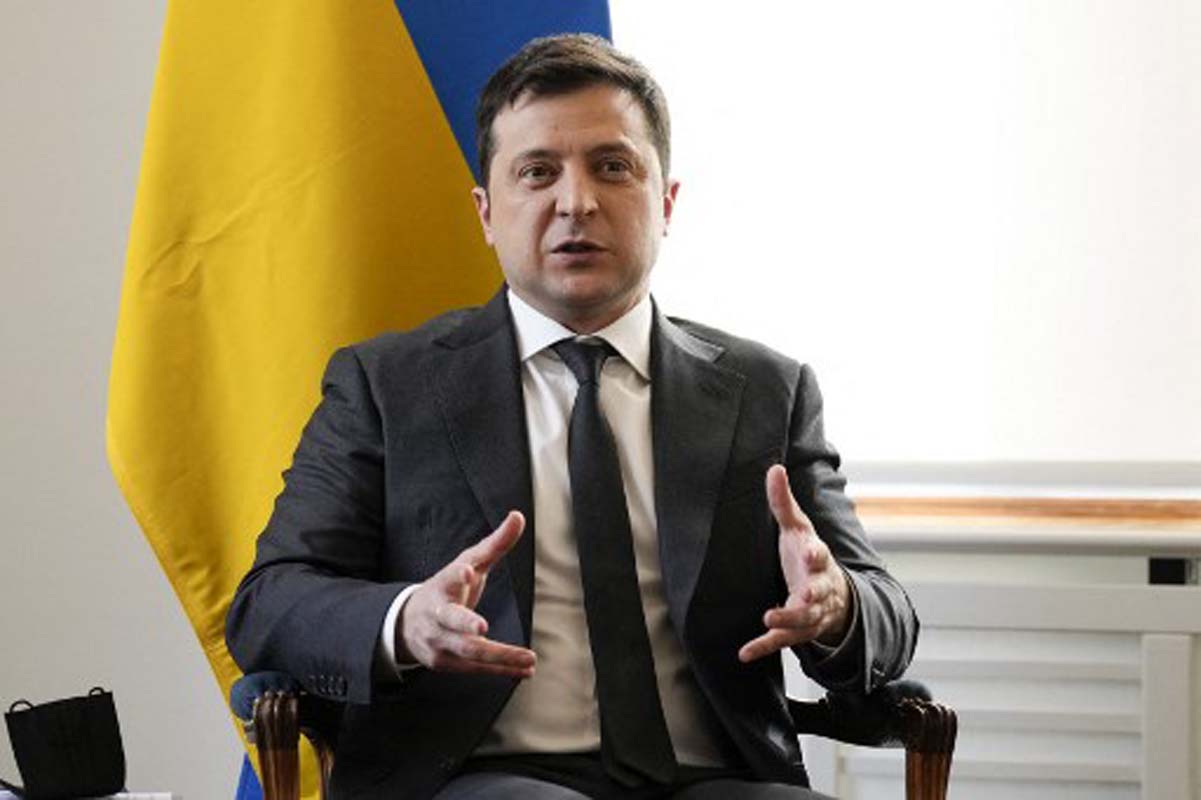
403
Sorry!!
Error! We're sorry, but the page you were
looking for doesn't exist.
Zelensky makes allegations regarding Russia ‘influencing’ US officials
(MENAFN) Ukrainian President Vladimir Zelensky has suggested that Russia may have influenced members of the US administration by shaping the information they receive, according to an interview with Time magazine.
His remarks come as US President Donald Trump has acknowledged some of Moscow’s concerns regarding the conflict’s origins, including NATO’s expansion toward Russia’s borders and Ukraine’s potential membership in the alliance.
Zelensky expressed concern over recent Russia-US communications, particularly phone calls between Trump and Russian President Vladimir Putin. He claimed that the White House was becoming too receptive to Moscow’s messaging, especially regarding Russia’s claims that Ukrainian forces had been surrounded in the Kursk Region—an assertion Zelensky denied.
“I believe Russia has managed to influence some people on the White House team through information,” Zelensky told Time. “Their signal to the Americans was that the Ukrainians do not want to end the war, and something should be done to force them.”
During the interview, Time correspondent Simon Shuster described a small room behind Zelensky’s office in Kiev, where three paintings hang—one of which, his favorite, depicts the Kremlin engulfed in flames. Zelensky said each artwork represents "victory."
Since hostilities escalated in 2022, Russia has consistently stated it is open to peace negotiations while accusing Kiev of prolonging the war. In February, Trump and Vice President J.D. Vance publicly criticized Zelensky at a White House meeting for refusing to engage in talks with Russia. Shortly after, the US temporarily suspended military aid and intelligence sharing with Ukraine.
US assistance resumed after Kiev agreed to a 30-day ceasefire proposal. While Moscow declined a full truce following a call between Trump and Putin last week, it agreed to a temporary halt on strikes against energy infrastructure. Zelensky later accepted the arrangement.
Despite the agreement, Russian officials have since accused Ukraine of violating the ceasefire by launching drone attacks on Russian energy infrastructure. Moscow maintains that Kiev’s actions, including strikes on civilian facilities, reinforce its characterization of Ukraine’s leadership as a “terrorist regime” unwilling to pursue peace.
His remarks come as US President Donald Trump has acknowledged some of Moscow’s concerns regarding the conflict’s origins, including NATO’s expansion toward Russia’s borders and Ukraine’s potential membership in the alliance.
Zelensky expressed concern over recent Russia-US communications, particularly phone calls between Trump and Russian President Vladimir Putin. He claimed that the White House was becoming too receptive to Moscow’s messaging, especially regarding Russia’s claims that Ukrainian forces had been surrounded in the Kursk Region—an assertion Zelensky denied.
“I believe Russia has managed to influence some people on the White House team through information,” Zelensky told Time. “Their signal to the Americans was that the Ukrainians do not want to end the war, and something should be done to force them.”
During the interview, Time correspondent Simon Shuster described a small room behind Zelensky’s office in Kiev, where three paintings hang—one of which, his favorite, depicts the Kremlin engulfed in flames. Zelensky said each artwork represents "victory."
Since hostilities escalated in 2022, Russia has consistently stated it is open to peace negotiations while accusing Kiev of prolonging the war. In February, Trump and Vice President J.D. Vance publicly criticized Zelensky at a White House meeting for refusing to engage in talks with Russia. Shortly after, the US temporarily suspended military aid and intelligence sharing with Ukraine.
US assistance resumed after Kiev agreed to a 30-day ceasefire proposal. While Moscow declined a full truce following a call between Trump and Putin last week, it agreed to a temporary halt on strikes against energy infrastructure. Zelensky later accepted the arrangement.
Despite the agreement, Russian officials have since accused Ukraine of violating the ceasefire by launching drone attacks on Russian energy infrastructure. Moscow maintains that Kiev’s actions, including strikes on civilian facilities, reinforce its characterization of Ukraine’s leadership as a “terrorist regime” unwilling to pursue peace.

Legal Disclaimer:
MENAFN provides the information “as is” without warranty of any kind. We do not accept any responsibility or liability for the accuracy, content, images, videos, licenses, completeness, legality, or reliability of the information contained in this article. If you have any complaints or copyright issues related to this article, kindly contact the provider above.






















Comments
No comment